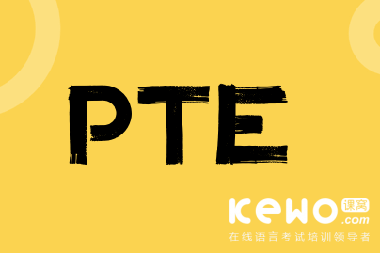PTE写作让步状语从句解析

关于PTE考试方面,在考试有哪些需要注意的,怎样才可以提高自己的能力,下面小编给大家分享一些PTE写作考试让步状语从句的解析。

让步状语从句
顾名思义,让步状语从句一般译为“尽管……”或“即使……”,以表让步的含义。引导让步状语从句的连词很多,常见的有though,although,while,as,even if,even though,whether... or...等等。下面我们来看一些让步状语从句的表达方式。
1. as/ though
由as,that,though引导的特殊的让步从句结构,主要用于正式问题或文学问题中,为了强调让步的意义。
e.g. Tired though/ as he was, the headmaster went out again to look for the lost child.
2. while
while引导让步状语从句,意义相当于although,但值得注意的是:while引导的让步状语从句只能前置,位于句首,while位于主句之后,其含义就会变成“(两者相比较时)但是”。
e.g. While I understand what you say, I can't agree with you.
虽然我能理解你所说的,但我不能表示赞同。[让步]
e.g. Most digital camera owners are male, while women prefer film.
大部分数码相机的主人都是男性,而女性偏爱用胶卷。[但是]
3. if
if有时也带让步含义,这时要注意“条件if”和“让步if”的区别。
e.g. If he is poor, he is at least honest.
即使他穷,他至少还诚实。[让步if]
e.g. If he is poor, how can he buy the big house?
如果他很穷,怎么能够买大房子?[条件if]
4. 表示让步概念的无动词从句
e.g. A timid young man, Tom nevertheless dived into the river and rescued the drowning child.
Tom虽然是个胆小的年轻人,但他跳入河中救起了溺水儿童。
例题:
___ all the world were against us, we should still stick to our opinion.
A. Though
B. Although
C. As
答案:A
参考语法点:当让步状语从句指某种假设情况时,通常用“though”,而不用“although”。
e.g. Though all the world were against us, we should still stick to our opinion.
即使全世界都反对,我们也要坚持自己的观点。
引申:
although和though两者大致同义,一般情况下可以互换使用,但它们也有一些区别:
although比though更正式,语气也更重;
though可与as、even连用(as though,even though),although却不能;
though可用作副词,放在句末,意在转折(如:It's hard work; I enjoy it though.),although一般不这样用;
though引导的让步状语从句可用部分倒装的形式(如:Poor though I am, I can afford it.), although一般不这样用。
三个词组辨析
接下来我们重点分析三个词组:“as soon as”,“scarcely (hardly)... when... ”,以及“no sooner... than... ”,这三者含义相同,都表示“一/刚……就”,不过各自用法也有些许差异。
1. as soon as
最为常用,在句中的位置比较随意,置于主句前后均可,不用倒装,而且也可用于各种时态。
e.g. As soon as I went in, Katherine cried out with pleasure.
e.g. I'll return the book as soon as I have read it.
e.g. I'll tell him the news as soon as I see him.
2. scarcely (hardly)… when
hardly虽然含有很强烈的否定含义,但在这个词组里还是理解成“差点来不及(也还是来得及)”比较妥当。使用这个结构时,主句中的动词一般用过去完成时;若把hardly放于句首,主句要倒装。
e.g. He had hardly finished the article when the light went out.
他刚写完文,灯就熄了。
e.g. Hardly had he entered the classroom when it began to rain.
他一进教室,天就开始下雨了。
3. no sooner… than
在网上找相关资料时看到一些地方说这个词组表示“刚……就……”时主句须用倒装形式,但在语法书上我也找到了没有倒装的例子,所以小编更倾向于认为它的用法同上述“scarcely (hardly)…when”相同。
e.g. No sooner had he arrived than he went away again.(倒装)
他刚到就又走了。
e.g. He had no sooner arrived home than he was asked to start on another journey.(不倒装)
他刚到家就又被叫出去出差了。
如果你还有其他关于2018年PTE经验,2018年PTE介绍等问题,可以联系我们。


上一篇: PTE写作定语从句中的关系代词
下一篇: PTE写作条件状语从句的解析
猜你喜欢

语言测试黑马——PTE英语考试
 2023.12.08
2023.12.08

PTE备考攻略:从零开始,四周攻克考试,不走弯路!
 2023.11.16
2023.11.16

PTE考试:适合对象及报名流程与考试题型详解
 2023.11.09
2023.11.09

PTE考试在国内的报名流程及使用优惠码享受折扣的方法
 2023.10.26
2023.10.26

